I have never felt ‘connected’ to gay culture in any meaningful way, nor have I ever wished to become so. I left the first pride parade I ever attended disgusted. Men dressed scantily and sexually, leather and harnesses worn as if they intended to go to the derby and wound up confused on 5th Street instead. The truth is that gay culture appears to me to center too heavily on sex, with a lack of community outside of this. The further issue with this is that it is forced onto us by other gay men within this ‘community.’ Ultimately, this is a very difficult discussion to hold. If I say gay culture is sexual, I’m told straight culture is equally as sexual, as well. If I say I don’t wish to be in the ‘community,’ I’m told I have internalized homophobia. Discussing gay culture is essentially a catch-22 where you can’t make an in-roads without incurring steep criticism from other gay men. Furthermore, research done on this topic is practically non-existent. The only discussions you can find online come from forums such as Reddit. And I challenge, if this is such a highly-perceived issue by other gay men and myself, why is it not discussed?
Them, an LGBTQ+-focused magazine, briefly categorized this issue in 2020, following Yale Psychologist Clark Pachankis’ study from the same year. Pachankis found that intraminority interactions between gay men are leading causes of stress and mental health issues. His study critiques the lack of social connections, not expressions of sexuality, leading to a community hyper-focused on wealth, masculinity and appearance. Essentially, gay and queer people lack a ‘third place’ — a non-work or home environment focused on community.
“One of the great things about being queer is that it allows people to stand outside the status quo, to form diverse communities and diverse friendships,” Pachankis told Them. “That ability gets harder to see in online spaces where people can self-segregate, reject people and just talk to people who are 100 feet away.”
Ultimately, the lack of online as well as physical spaces where gay people can meaningfully connect to one another creates an inaccessibility to the community. Thus, this enforces the community as a mainly sexual space. The only online forums for gay men to connect manifest primarily as applications used for hook-ups and sex. In-person, they manifest primarily as gay bars. This lack of a space devoted to connection and belonging creates an issue for queer minors looking for a community through these spaces, evermore so if they are in homophobic environments at home. This forces gay youth to engage prematurely in sexual spaces, exposing them to hypersexual ideas, depictions and, most horribly, the potential of abuse. This itself is a glaring issue as it demonstrates the damage caused by the lack of a non-sexual queer ‘third place.’
While I am grateful for the community spaces at Colgate University: Pink House, Rainbow Room and the Center for Women’s Studies, I feel slighted by university-sanctioned events. As many of you may be aware, the Office of LGBTQ+ Initiatives is hosting a “Sex Toys Bingo” this upcoming Valentine’s Day. Furthermore, Colgate is bringing two artists, also sponsored by the LGBTQ+ Initiatives, for ‘Queertopia’ near the end of February. While the latter may seem wholesome as an opportunity to connect to a community with art, the main artist, Paul Richmond, is a publisher of a gay ‘pin-up’ style adult coloring book aptly named “Cheesecake Boys.” These drawings depict near-nude cartoon men in sexually implicating poses. I challenge why these ‘community events’ hinge on the idea of sex and explicitness, again a lack of non-sexual ‘third places.’ As a gay student at this university, should I aspire to one day illustrate lewd, sexual images of men, or enjoy such a style of art? Or perhaps I should raffle for sex toys, because shouldn’t gay people all want those? Is the issue that these offerings present not clear?
As I highlight this concern, I expect opposition to my opinions. I would like to clarify that nothing is wrong with how little or large someone’s sexual expression is. I simply think it is wrong that the representation I am given and the events being created center around sex. This, however, both at Colgate University and at large, doesn’t have to be the case. Gay culture can be fixed and changed to a community in which solidarity, fraternity and understanding are realized. The first step to this, however, is to recognize our great flaws in how we, as gay people, interact publicly and online. When I was a gay youth, never seeing any representation of healthy relationships, community or solidarity ostracized me from a group of which I did not choose to be a part. And I sincerely hope that one day in the future, the queer youth will be presented with ideals of love and community — not sex, objectification and homoerotica.


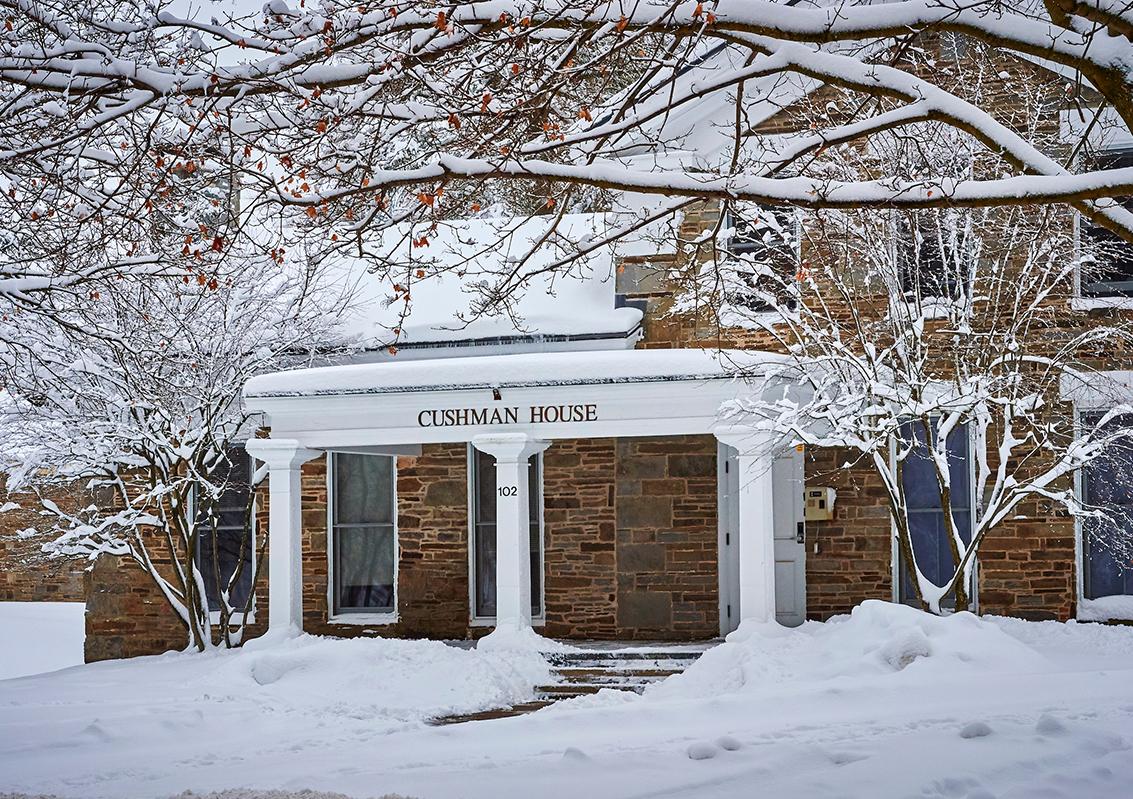

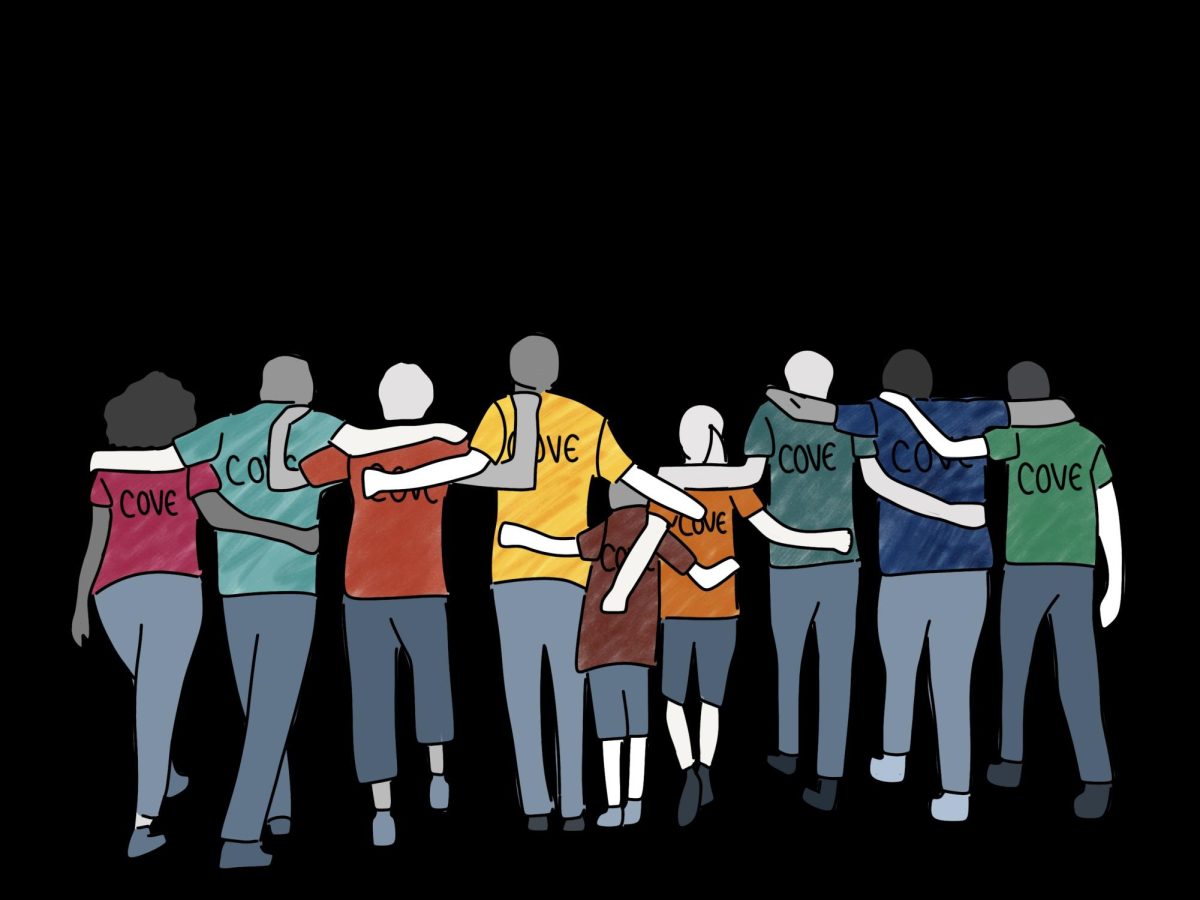
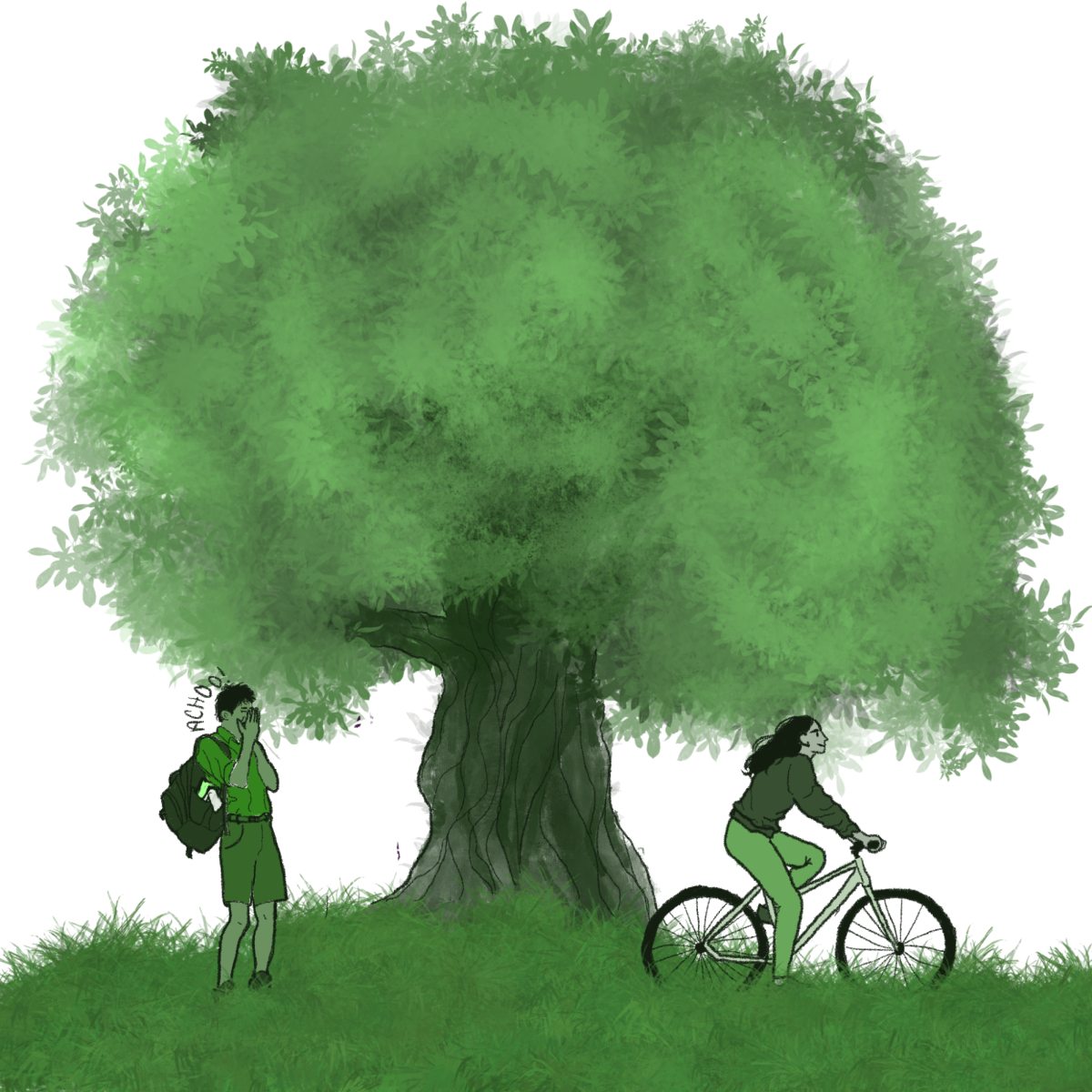

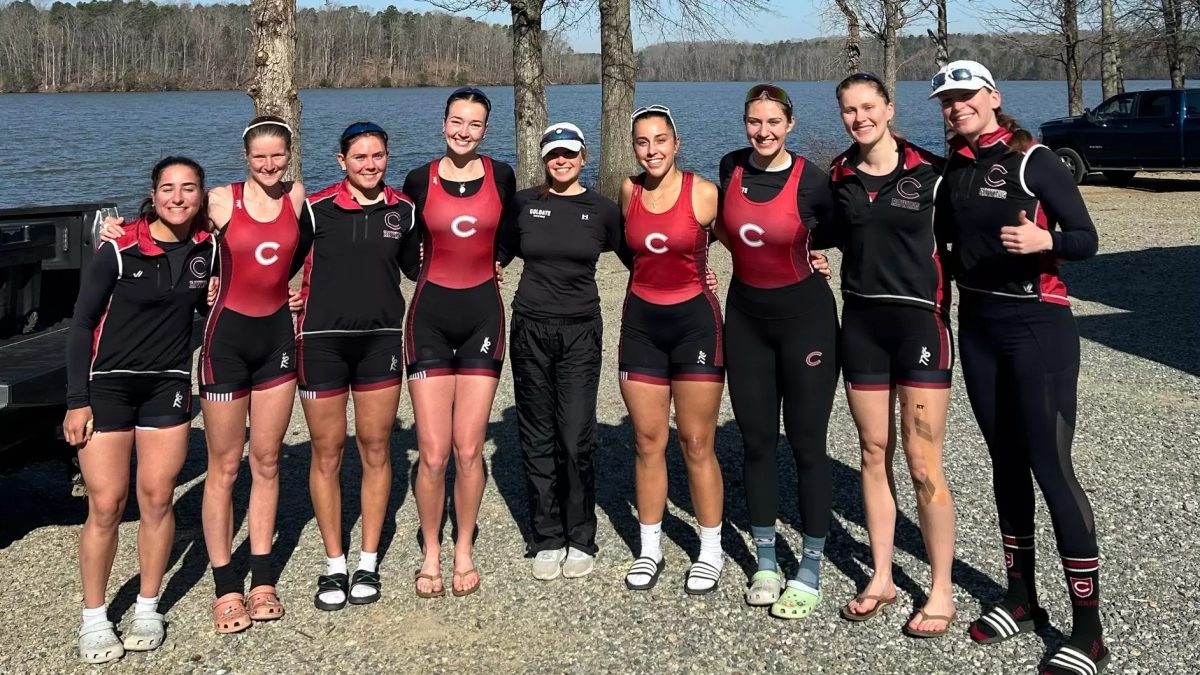

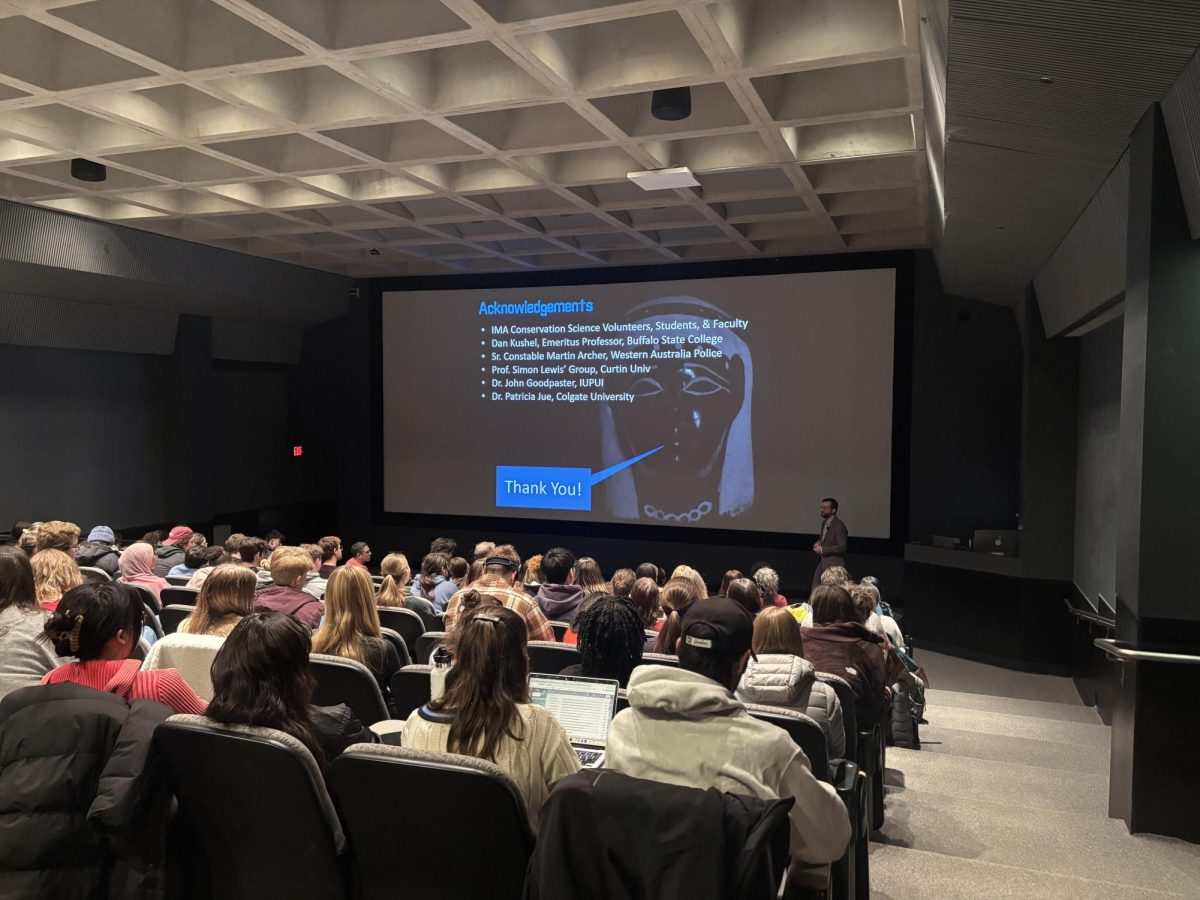
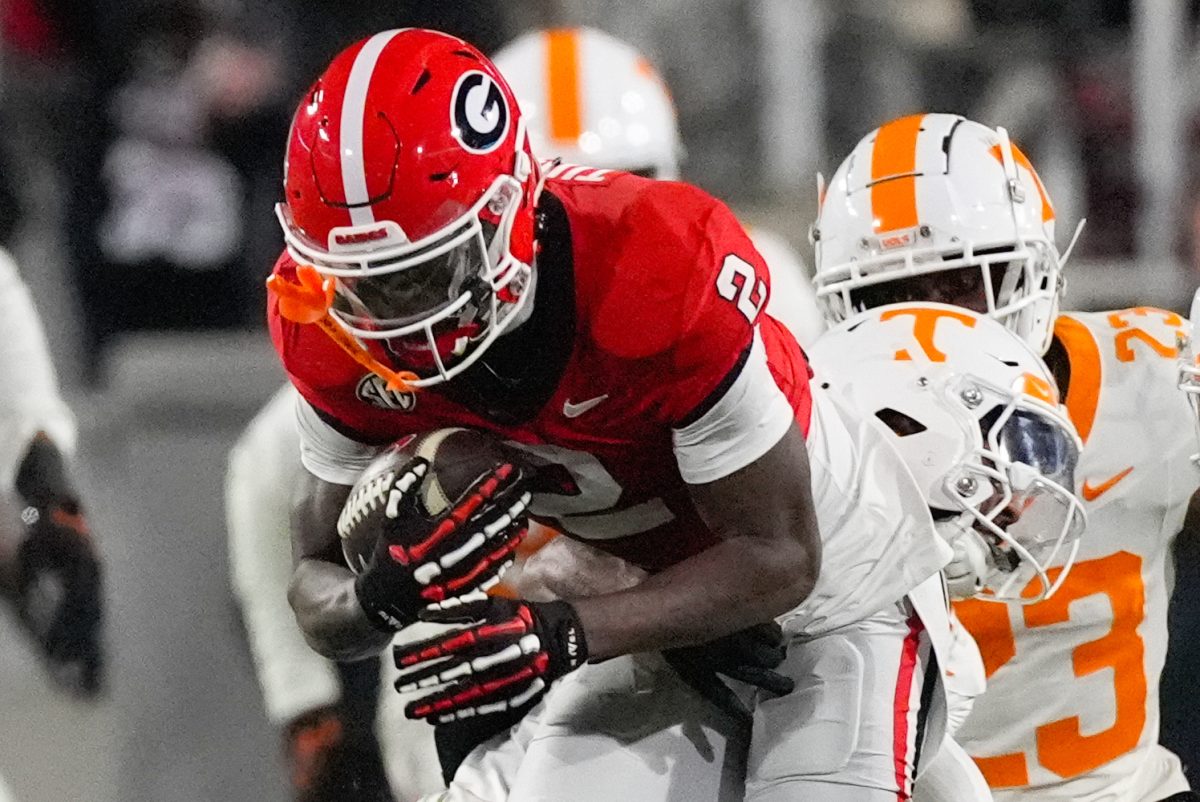
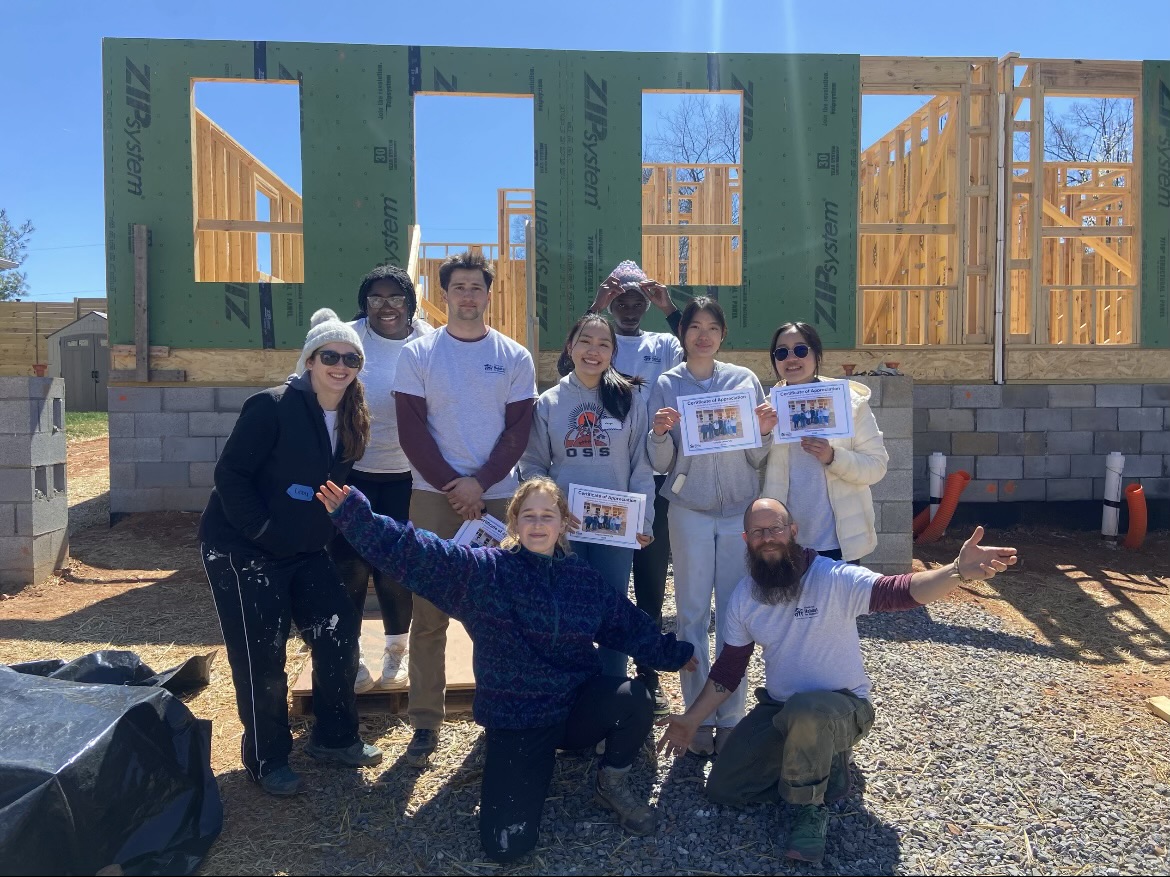


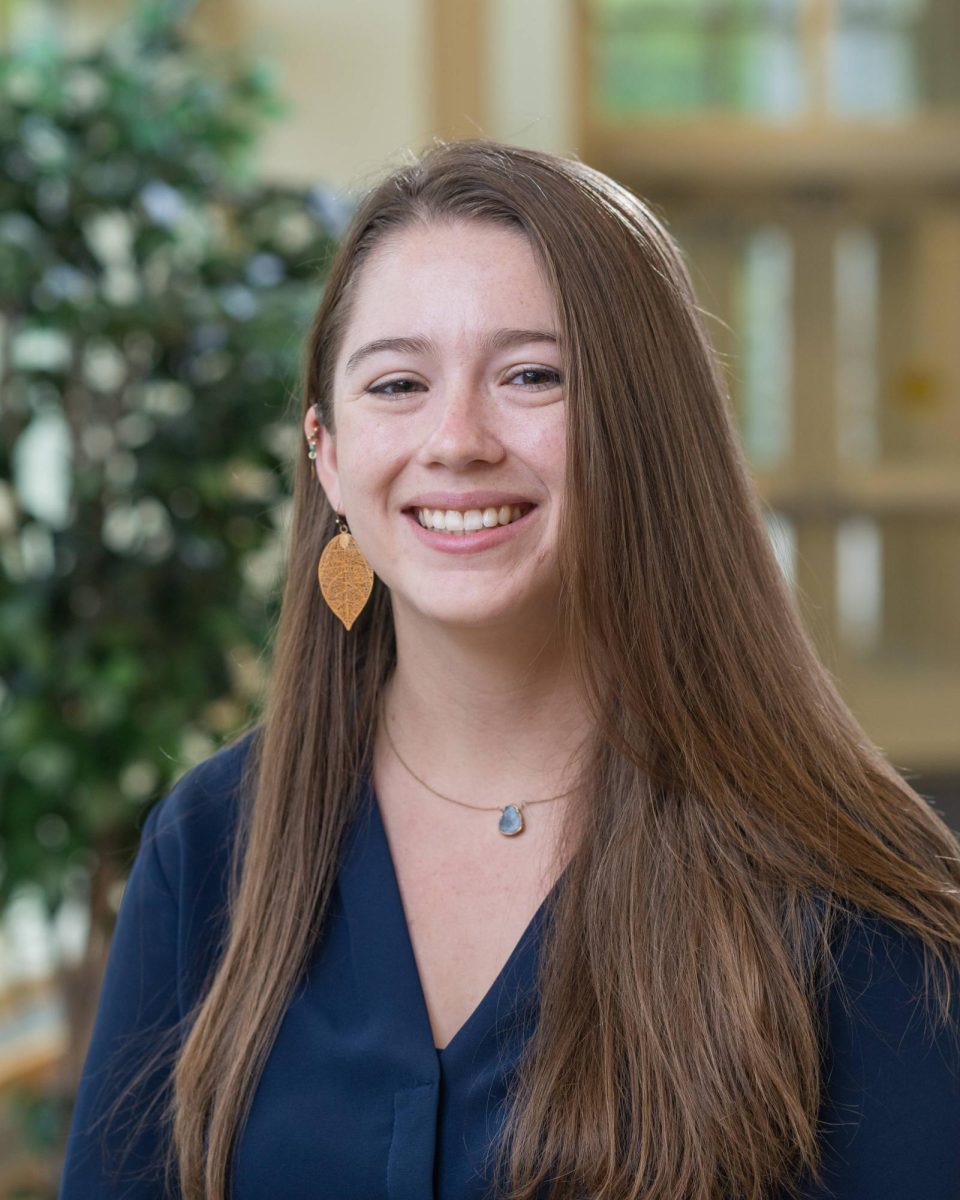
Jake Witcher • Oct 27, 2024 at 9:50 pm
First of all—one of the best and most-relevant articles I’ve ever read—thank you. I’m currently 48 and this article resonates with me on such a deep level. I could not have verbally articulated this better myself. I still haven’t read all the comments, but will. Please keep doing what you’re doing. We need more movers-and-shakers like you to create the third leg (no pun intended
I would do it myself, but won’t start something and leave it unfinished—meaning that I won’t start it. :/ :-*
Great work!
Rick Seg-Gue • Feb 24, 2024 at 8:58 am
I am 60 and after so many decades of being out, I STILL feel alienated from mainstream gay male culture, whch is at once hypersexual and frivolous. The solution, young man? Give up. There’s no point in trying to cultivate friendships with members of a community whose values are so radically different than your own. Just find friends, gay or straight, through an investment of time and effort in your hobbies and goals.
O • Feb 21, 2024 at 7:50 am
I think the most difficult part about reading this article was the lack of compassion and remembrance of gay liberation and history. The narrow scope that may only apply to a straight, white, and, for the most part, wealthy man is boosting a harmful image placed on the queer community by straight people.
A simple history lesson would do a great justice to help understand why many of these negative arguments are so harmful. ‘gay bars’ have historically and continue to be a space for queer individuals to express themselves in a safe space. I’d advise people to look into maybe, The Stonewall Inn riots, or Chepstow Pub protest in London. There are countless accounts and opportunities to educate oneself on why these spaces should never be talked about in a negative manner. this allows hate and prejudice behavior to fester. This gives way for the actions of these strong individuals–who fought for queer safe spaces–to be reverted.
Moreover, I’d also like to point towards women, lower class, and minority voices who have sacrificed their time and lives to the liberation of queer people. Marsha P. Johnson, Sylvia Rivera, Lani Ka’ahumanu, Audre Lorde, to name a few powerful voices.
Hate has no space in the struggle towards gay liberation. In unity and solidarity there is change and power.
Vern • Feb 19, 2024 at 7:53 pm
Since Spring 2021, the asexual and aromantic communities at Colgate University have had a plethora of events, educational tabling, movie discussions, book clubs, and other initiatives hosted to uplift and empower queer individuals that do not participate nor desire sexual and/or romantic spaces. Last week’s article homogenizing LGBTQ+ programming on campus has perpetuated a harmful, allonormative perspective of the queer community that has further erased and invalidated asexual and aromantic bodies and their struggles. In the past four years alone, ACE Week and ASAW (Aromantic Spectrum Awareness Week) have been annually celebrated with a slew of community and educational events each semester.
In fact, since Spring 2021, there has been at least one event a semester (more accurately, five to six) that have focused on asexuality and aromanticism. Aside from events made to uplift the non-sexual and non-romantic desires of ace and aro Colgate students, there are a plethora of events organized from clubs and departments that focus on non-sexual aspects of the queer community. This semester alone, there has been a pronoun pin making night, a trans* health round table, an LGBTQ+ hike, a movie night, two valentine’s card making events, a collaborative henna night, an aromantic-centered book club, and an upcoming baking event. That does not include any of the brown bags nor academic events that center LGBTQ+ voices and experiences.
With more than 36 events last semester being hosted by an LGBTQ+ organization, the students who have taken time, energy, and heart to coordinate countless events over the years are diminished and disrespected through the claim that there is no space on campus for non-sexual queer individuals. This claim also actively erases the members of the queer community who do not experience certain forms of attraction and overlooks the multitude of events that have been organized to develop a safe and empowered queer community for them at Colgate.
There are countless queer students on this campus that express feeling isolated and othered due to their sexuality and gender identity. Asexual and aromantic erasure alone is a severe problem that gets little to no recognition by the larger Colgate community, especially when experienced by non-homonormative bodies. Yet, many, aroace or not, have risen to the challenge of carving out a home for themselves and others like them. Those efforts must be praised and supported by the queer community and allies on campus, not erased and invalidated. We must continue to question our allonormative and homonormative understandings of queerness, ensuring that we uplift rather than cut down the rare few working to better the lives of their peers and community.
Lemon • Feb 19, 2024 at 2:03 pm
I agree with all the comments and would also like to call attention to the photo used for this article. The Cushman House which is The Pink Haus is a space that was create by QTPOC, the queer poc, to provide and facilitate physical community for all queer folk that did not exist beforehand. To create housing specifically for queer people is a huge win that would have been unheard of 10 years ago. It makes me wonder how many college campus would provide a safe space specially focused for queer students. Additional the article center the Pink Haus, maybe unintentionally, as the center of this issue with gay culture. I would challenge the author to consider the implications of placing Pink Haus as the image when the article mainly focuses on gay men with one explicit mention of queer folks in general that I picked up on. So if you haven’t made your way down to the Pink Haus I would also encourage you to do so.
Max • Feb 19, 2024 at 1:12 pm
The need for nonsexual queer spaces does not mean that we need to shut down sexual queer spaces. Sex toy bingo, queer dating apps, and Pride are important parts of queer culture on and off Colgate’s campus and this argument against them is inappropriate and alienating. Additionally, you have omitted the many organizations on campus that *aren’t* focused on sex: LAMBDA, WMST, Cushman House, QTPOC, and so many others that put together incredible events every week. Before writing angry articles about how queer culture on campus doesn’t appeal to you specifically, try looking around campus first to make sure you haven’t been missing anything.
Oscar • Feb 19, 2024 at 9:02 am
As a gay man, I find there is much accuracy to the idea that there are aspects of gay culture which perpetuate ideas of hypersexuality. It does exist, and it can be alienating. However, the issue I have with this article is the way in which the author attempts to highlight this issue.
For one, there are countless, blatant inaccuracies regarding the information being presented in this article, including misspellings, incorrect attributions, and the very bold claim that there is ‘no research done on the subject’ of gay men and hypersexualization. There is an entire field of research which focuses on this very topic, so if you wish to pursue it from an academic perspective, I would highly encourage you to do so. Second, you claim you lack a ‘third-space’ where queer people can exist in a non-sexual environment, and I argue that you have simply not put in the time and effort to participate in these spaces. They exist all over campus, organized by students, clubs, and university departments and organizations, and are all things I participate in on, if not a daily basis, then a weekly. I encourage you and everyone else to feel as alienated as you do to seek out these spaces and join them: they are welcoming for everyone.
Another inaccuracy I wish to point out is, one, the misattribution of Queertopia to LGBTQ+ Initiatives, when it is in fact LGBTQ+ Studies and Colgate Arts Council, as well as a misrepresentation of the artist Paul Richmond. Richmond is a fantastic artist who expressly focuses on queer joy: if you were to go to their website, you would find exactly this, and the ‘Cheesecake Boys’ you complain about being only a small facet of bis work. And to paint an individual artist’s work as representative to the entire community of LGBTQ+ men is pandering to an argument you can’t even properly support. Myself and many others are incredibly excited for Queertopia, and I hope your unnecessary slander of the artist does not inhibit the queer joy of the event.
It is also urgent we talk about the discussion of queer minors being forced into sexual spaces. For one, this is completely untrue, and your lack of backing it up with any kind of source tells me you are simply succumbing to anti-gay propaganda perpetuated to continue the oppression and criminalization of gay men for simply being gay. The notion of the ‘pedophilic gay man’ (because that is clearly what you are implying) is closely tied with continued conservative, religious perspectives intended only to demean a community of people which have historically done nothing of the sort.
I would also like to address the dehumanizing and dividing language used in this article. It is my only possible interpretation that you invoke images of gay men being equated to horses in your line about the derby, which I find to be appalling when considering the methods in which people use to divide and oppressed marginalized communities. Further, at the end of the article, you make the call that we need to ‘fix’ gay culture, a term in which I find expressly draws upon conversion therapy rhetoric that seeks to oppress queer sexuality. In doing so, you only continue to perpetuate not just harmful, but traumatic imagery upon those within the queer community who have, and may continue to, face the consequences of such things. I am also appalled by your choice of the word ‘disgusting,’ as I see it only as a word meant to incite an emotional reaction, and not meant to supplement your argument.
You also oscillate between ‘gay’ as a use for ‘gay men’ and ‘gay’ as a use for the LGBTQ+ community as a whole, which is misrepresentative when really, you are only discussing a small subsection of the queer community. If you are going to write an article about this in the future, I recommend using a uniform way of discussing the identity you actually mean to be discussing.
I will state again, this article feels intentionally incendiary. Because you are right: hypersexualization is an issue in the community of gay men. But it is not the dominant issue. It is not worthy of such a volatile and stereotypical perspective. It is one that should be approach with care. We should be asking why these structures that encourage the worship of sex and the body exist, why they are imposed on gay men, specifically. But we should also question why we have these perspectives in the first place. Why you believe gay men are hypersexualized? How much of it is a perspective which is incurred because of societal stereotypes about gay men? How much of it is a result of succumbing to the anti-gay perspective that gay culture is inherently sexual, casting LGBTQ+ people as ‘sexual predators,’ a point of which, in the past, had been used to enforce sodomy laws and criminalize the very act of showing any non heteronormative sexuality or gender?
And so, to ask for a complete rejection of sex in LGBTQ+ communities is appalling. Our history is rooted in key aspects of the sexual liberation movement. Being sex-aware and sex-positive is what gives you and me both the privilege to openly talk about being gay today. Without it, you demean the work of LGBTQ+ activists who came before you, you reject all of the action they have done, and you forfeit a past which continues to be vital for protecting our future.
As a gay man, I implore you to reach out to people. I implore you to make other connections within the queer community. Talk to people, understand their perspectives, and acknowledge that two different realities can coexist at once. Yes, hyper sexuality can be an issue, but it is not a wholly dominant one, and one that is, fundamentally, rooted in anti-gay rhetoric that seeks only to dismantle the LGBTQ+ community.
Jose • Feb 18, 2024 at 9:48 pm
I am unsure how this was published, given that the article is ignorant of the extensive literature regarding queer spaces and the over-sexualization of the queer community. Saying that “research done on this topic is practically non-existent” is beyond false, and the article overall is ahistorical and ignorant. The Maroon-News needs to publish articles that are well-informed, especially since it is harmful to publish articles like these that are slanderous to organizations and cultural spaces that are already marginalized and discriminated against.
R • Feb 18, 2024 at 9:12 pm
Although it brings me sadness to see any queer student feel isolation and invalidation on this campus, the homogenization, allonormative and homonormative rhetoric, and disinformation in this article create a hostile and threatening declaration both towards specific members and the whole queer community. Not only is LGBTQIA+ spelt wrong in the image description in the printed version (spelt LGBTIQA+), but the claim that LGBTQ+ Initiatives is sponsoring Queertopia is factually incorrect. As seen on all the flyers and social media posts promoting the event, it is LGBTQ Studies and the Colgate Arts Council, NOT LGBTQ+ Initiatives, that is sponsoring this event. Additionally, sex toy bingo is an event co-sponsored, not hosted, by LGBTQ+ Initiatives. Last year LGBTQ+ Initiatives also did not host sex toy bingo. That was the WMST Center who, along with the ALANA Cultural Center, First@Colgate, Haven, LGBTQ Initiatives, and Shaw Wellness Institute, organized the event. And in 2022, LGBTQ+ Initiatives hosted ‘Queer* Jeopardy: Valentine’s Edition!’ which explicitly promoted non-sexual queer relationships in it’s description: “Valentine’s Day is a celebration of love, not only to your significant ones, but your friends and community.” All of this information is easily accessible on the events calendar.
When making claims such as these, it is important to ensure you are using factual and accurate information. Not bothering to ensure your argument is concrete and accurately supported shows that this article was not made with intent to help nor empower the queer community. We need to center clearly thought out perspectives of queer people, not highlight impulsive, harmful opinions of a minority within the community. Otherwise, we risk disrespecting, dishonoring, and insulting the efforts of queer students leaders and the queer students who do not have a space on this campus due to transphobic, acephobic, racist, and ableist systems making up Colgate’s social structure.
McL • Feb 18, 2024 at 6:56 pm
Love the framing of this article about “gay culture” and yet the entire focus being only on gay men…(presumably white, cis gay men )
Eti • Feb 18, 2024 at 3:31 pm
Your entire argument is so inherently flawed as the heteronormative practices here which are very much apparent also employ characteristics that you claim to be the “gay culture” on campus, but you seem to have completely ignored that in order to formulate a very niche argument that wrongfully generalizes an entire community on campus.
Max • Feb 18, 2024 at 3:19 pm
At best, this article centers a misguided take with a weak and hollow argument. Ean, this is incredibly disappointing. You have willfully ignored various gay communities on Colgate’s campus alone to further an argument which completely disregards the nuanced history that created this problem, and have instead indicted well-intentioned movements and campus organizors. Why is there no mention of groups like Lambda, QTPOC, and TAG? You’ve focused on Sex Toy Bingo, which is sponsored not only by LGBTQ+ Initiatives, but also the Student Health Center, ALANA, Shaw Wellness Center, and First at Colgate. The event is also not limited to queer people–plenty of straight, cis people attend, because it is consistently a fun and wholesome environment. You’ve then attacked the upcoming Queertopia event because one of the artists illustrated a pin-up coloring book, when the event itself is centered around queer joy in a completely non-sexual context, which should not at all be overshadowed by one of the artist’s past work. Your reduction of Queertopia is a blatant display of your tunnel vision–just in the past two weeks queer organizations on campus have hosted events including: movie night pronoun pin making, hiking, Henna, and Valentine’s card-decorating. To completely ignore these events and then write something as inflammatory and inane as “Gay culture can be fixed and changed to a community in which solidarity, fraternity and understanding are realized,” while writing an article which accuses the community and makes impossible this sense of solidarity and fraternity you so seek, is shameful. Respectfully, I’m surprised the Maroon News published an article that reads as this one does. I don’t disagree that oversexualization is a problem in the gay community, but accusing the queer community as a whole of lacking “non-sexual third spaces” with this article’s holier-than-thou language is more disgusting than a New York pride parade has ever been.
J • Feb 18, 2024 at 2:05 pm
How can you bring up the Them article about self-segregation in the gay community, and then write this article which is explicitly segregating yourself from the rest of the community?
The sex toy bingo was hosted by multiple organizations on campus. Do not try to weaponize that to use against a single community, let alone your own. The queertopia event is designed as an expression of joy and solidarity among the queer community of Colgate – do not try to weaponize a literal coloring book against an event meant to highlight queer joy and positivity.
Sex is a main chunk of many minority communities simply because it has been so taboo for so long, so shunned and dismissed, and now people are finally able to openly enjoy sex and talk about sex with like-minded people without fear. To villainize us for finally finding our freedom to express our sexuality just as the straight population always has, ESPECIALLY from within our community, is extremely upsetting.